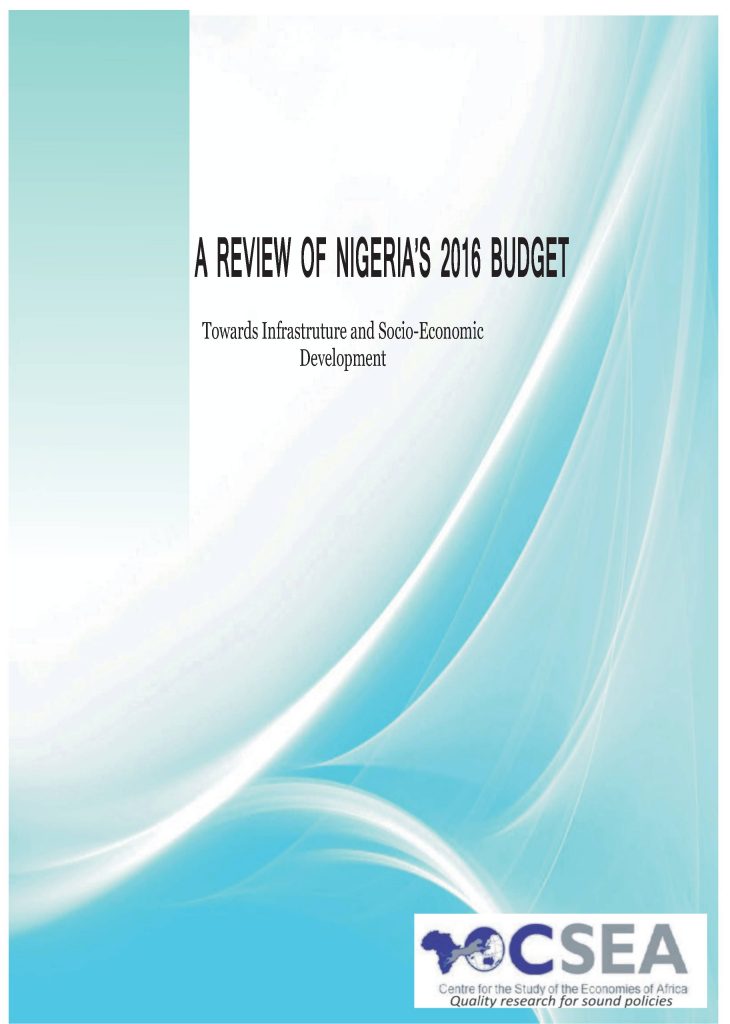Journal Articles and Book Chapters

August 2, 2016
A Review Of Nigerias 2016 Budget
This study
reviews and assesses the 2016
budget of the Federal Republic of Nigeria in line with IMFsbudget assessment indicators, namely: comprehensiveness, transparency, and
realism. The assessment is based on
clear understanding of the present
administrations objectives, which are: to achieve socio-economic
and infrastructural development, to diversify the Nigerian economy, and to
achieve improved security of lives and properties.
